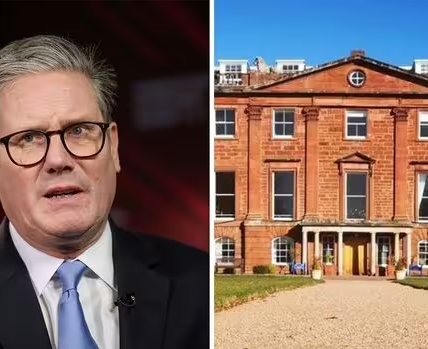The killing of three young girls at a Taylor Swift-themed dance class in Southport in July horrified the whole nation.
In the aftermath, there was – quite understandably – huge interest in the identity of the alleged attacker and what motivated the stabbing of children.
People were inevitably fearful. Yet in the hours and days after the deaths, there was precious little information from the police or anyone else in authority about the case.
Into this vacuum flooded misinformation. Fuelled by false reports, cynically spread on social media, that the suspect was a Channel migrant or on a terror watchlist, rioting broke out across the country.

Axel Rudakubana, 18, is accused of murdering the children. Yesterday, it was revealed he had been charged separately with producing the deadly poison ricin and possessing a study of an Al Qaeda training manual

The teenager is accused of murdering three young girls – Alice Dasilva Aguiar, nine, seven-year-old Elsie Dot Stancombe and Bebe King, six

Police at the cordon of the incident in Southport in July
Others wondered if the full story was being told.
Yesterday, it was revealed that Axel Rudakubana, the 18-year-old accused of murdering the children, had been charged separately with producing the deadly poison ricin and possessing a study of an Al Qaeda training manual.
The announcement came exactly three months after the schoolgirls were killed.
Which begs the question: why did it take so long for the authorities to tell us?
The police are said to have found the items when searching the suspect’s home. Had senior officers made a clear statement then, it might have helped nip the disturbances in the bud.
The Tory leadership contenders have now questioned whether the police, Crown Prosecution Service and Sir Keir Starmer’s Government withheld significant facts.
Read More
Southport ‘killer’ is charged with terror offence and producing ricin

They deny it. But at a time when trust in public institutions is already worryingly low, any suspicion the powers-that-be are covering things up can only make it worse.
That would play straight into the hands of the bigots and grievance mongers who thrive on spreading malicious conspiracy theories.
Indeed, no less an expert than Jonathan Hall KC, the terrorism legislation watchdog, has argued this point.
In the wake of tragedies like the Southport stabbings, there is an overwhelming public interest in transparency.
To ensure there is no repeat of the same mistakes next time, the authorities must be honest with us.
A Budget for skivers
Rachel Reeves says she is determined to make the first Labour Budget for 14 years one for strivers.
A better description might be a reward for skivers.
Where is the incentive to work harder, start a business or save for the future if you will bear the brunt of the Chancellor’s £35billion tax hurricane?
For all its talk of change, Labour is still hooked on tax-and-spend socialism.
This will overwhelmingly be a Budget for the public sector at the expense of the wealth-producing private sector.

Rachel Reeves says she is determined to make the first Labour Budget for 14 years one for strivers. Here she is pictured with Keir Starmer at the UK Labour Party annual conference in Liverpool in September
How will that create the growth Ms Reeves says she craves when productivity gains in the public sector over the past two decades have been negligible.
She is hobbling business at every turn. Take her inflation-busting increase to the minimum wage or damaging plans to hike employers’ national insurance contributions and give workers more rights.
They could see companies cut back on recruiting and investing.
If the finances are as bad as the Chancellor says, she should cut spending and borrowing.
She could save billions by trimming the bloated sector and getting many of those languishing on unemployment and sickness benefits into work.
That Ms Reeves clearly won’t proves that – as a blueprint for Britain’s future – this Budget is neither practical or sensible, but nakedly, destructively ideological.



